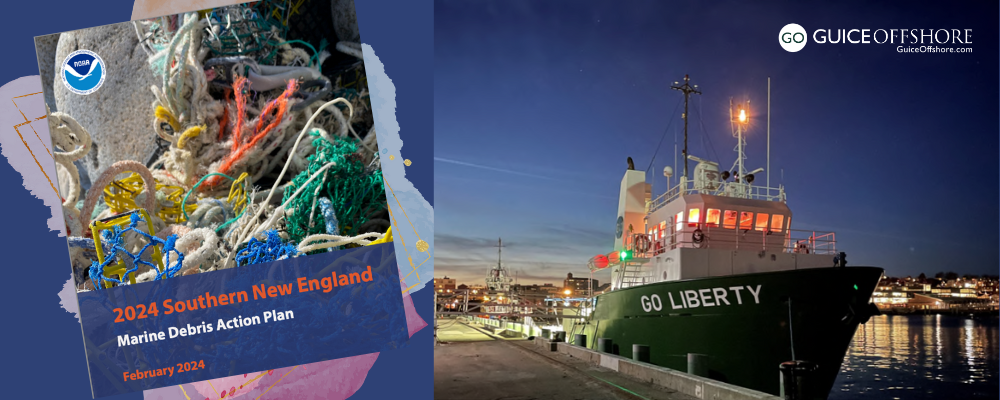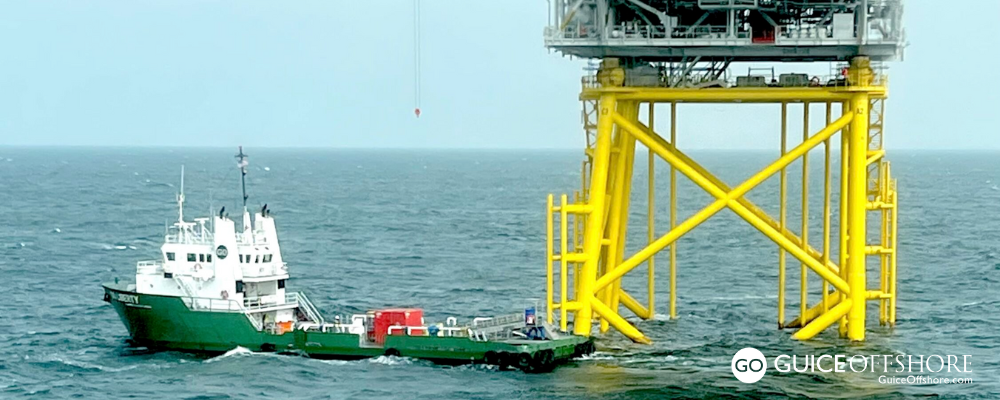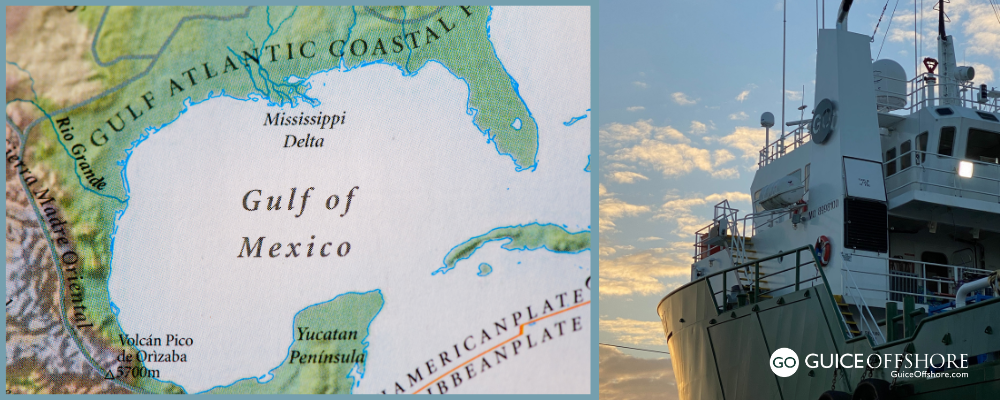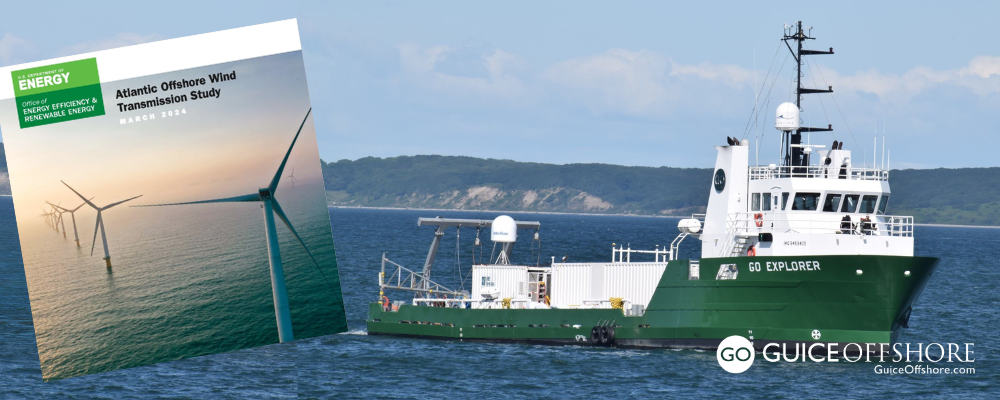Since 2006, the National Oceanic and Atmospheric Administration (NOAA) Marine Debris Program has led national and international efforts to research, prevent, and reduce the impacts of marine debris. To accomplish its mission, the Program supports marine debris projects in partnership with state and local agencies, tribes, non-governmental organizations, academia, and industry. It also spearheads national research efforts and works to change behavior in the public through outreach and education initiatives.
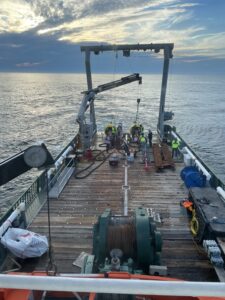
Guice Offshore’s northeastern U.S. office in Providence, Rhode Island noted the recent publication of the 2024 Southern New England Marine Debris Action Plan, which establishes a framework to ensure participants can collaborate on common goals focused on cleaning and protecting the coasts and waters of Rhode Island and Southern Massachusetts from the negative impacts of marine debris. The Action Plan encompasses work that will be conducted over the next five years (2024 to 2029).
To read the 2024 Southern New England Marine Debris Action Plan, click HERE.
Guice Offshore often removes marine debris during pre-lay grapnel runs (PLGRs), an operation designed to ensure the seabed along a planned cable pathway is clear and free of extraneous debris prior to the actual cable being laid. All debris items removed from the ocean are properly disposed of according to U.S. Bureau of Ocean Energy Management (BOEM) standards.
Composed of five goals: Prevention and Removal, Research and Monitoring, Coordination, Collection and Disposition, and Policy and Management, the new Southern New England Marine Debris Action Plan establishes a framework to ensure participants can collaborate on cleaning and protecting the coasts and waters of Rhode Island and Southern Massachusetts from the negative impacts of marine debris.
Below are some of the participants:
Some of their programs include:
Fiberglass Boat Recycling Program
Several states are engaged at various stages in the process of establishing a vessel recycling program, from gathering initial information to actively recycling fiberglass vessel hulls. These states include Ohio, Maryland, Virginia, California, Washington, North Carolina, South Carolina, Connecticut, Massachusetts, Maine, and Rhode Island. This program helped prevent abandoned and derelict vessels by providing a pathway for disposing of end-of-life vessels. In New England, Rhode Island Marine Trade Association (RIMTA) successfully recycled nearly 20 metric tons of fiberglass. RIMTA also developed an “End-of-Life Vessel Material Guide” to address the most relevant questions and concerns shared by vessel owners, marine businesses, waste managers and material end-users.
Mobilizing Diverse Stakeholders to Remove Derelict Fishing Gear (DFG)
As a result of this project’s efforts, 17 tons of derelict fishing gear was removed from shore and sea. The oldest intact trap recovered was 20 years old. Nearly 200 fishers and volunteers engaged in more than 1000 volunteer hours. In November 2019, a banquet featuring donated seafood was held to celebrate the successful culmination of the project, thanking project collaborators and participants, sharing outcomes and recovery results, and showcasing artwork featuring retired fishing gear.
Massachusetts Monofilament Recycling Pilot Project
Two bins in Marblehead and one in Winthrop, Massachusetts are now collecting monofilament line from responsible anglers. NOAA team members are continuing to recruit additional bin monitors, plan presentations for local fishing clubs, analyze the data collected, and educate the public on the newly installed bins.
Marine Debris Removal from Maine Seabird-Nesting Islands and Surrounding Waters
The National Audubon Society will remove marine debris from eight islands to benefit seabird nesting habitat in Maine. The project will also conduct outreach to coastal residents and engage volunteers in shoreline cleanups.
Partnering with Local Fishers to Remove Derelict Fishing Gear in the Gulf of Maine
Ocean Conservancy, along with partners at the Gulf of Maine Lobster Foundation will conduct removal activities in three locations in Maine state waters: the Portland area of Casco Bay, the Harpswell/Orrs Island area, and the Southwest Harbor/Cranberry Islands area. The purpose of this project is to: 1) remove derelict fishing gear (e.g. nets, traps) and large debris (e.g. gear balls) from identified hotspots in Maine state waters; and 2) build capacity and raise awareness of fishers and other stakeholders to implement best practices for managing gear and preventing/reporting gear loss.
Partners will convene two workshops with fishers, policymakers, conservation advocates and other stakeholders. Workshops will include training participants on best practices for reporting lost gear via the free Ghost Gear Reporter mobile app and Global Data Portal, the largest repository of ghost gear records worldwide. Partners will also host an event at the Maine Fishermen’s Forum in to share best practices/lessons learned and engage new beneficiaries in gear-loss prevention efforts.
Reducing Plastic Use Among Commuters and CoastSmart Restaurants
The purpose of this two-year project is to engage a diverse population of youth in community-based social marketing research and service projects that address the marine debris issues in their communities. Project staff and engaged students will work to reduce the amounts of single-use plastics and cigarette butts that begin as street litter and end up on beaches and in the ocean. This project will combine the best techniques from previously established programs and develop effectively tailored bilingual messaging for the unique commercial and residential populations of Salem and Lynn, MA.
Specifically, the messages will be developed to connect with the high percentage of ESL speakers and low-income families that make up a large part of the consumer base in both communities. Utilizing partnerships with Girls Inc. and Salem Public Schools, Salem Sound CoastWatch will recruit and work with groups of high school interns in Salem and Lynn, who will execute service projects.
Removal of Fishing Gear from Sensitive Cape Cod Marine and Terrestrial Habitats
There is a 400-year history of fishing and shellfish farming throughout Cape Cod Bay, and commercial fishing continues to be a significant industry in the region. Inevitably, fishing gear is lost each year to storm action, boat propellers, gear conflict or inattentiveness. Both legacy aquaculture gear and lost, abandoned or discarded lobster, scallop and finfish fishing gear are present, problematic and recurring in this region’s terrestrial and marine habitats, affecting many critical and threatened species.
The Center for Coastal Studies is partnering with commercial and recreational fishermen, the Massachusetts Environmental Police, private and municipal solid waste disposal providers, beach-goers, and other coastal interest groups to remove derelict lobster traps and parts, dragger nets, gillnet, buoys, monofilament, rope, twine, and cable from the beaches and bay in a two-year cleanup and public education effort.
In addition to the two-year cleanup effort, partners will conduct extensive outreach to target communities. Best management and prevention practices developed in consultation with representatives from the shellfish, groundfish and lobster industries will be shared with representatives of the Massachusetts Lobstermen’s Association, the South Shore Lobster Fishermen’s Association, municipal shellfish associations and fisheries managers. This information will provide tools for fishermen to reduce the amount of fishing gear debris and other trash that may accidentally enter the environment from their operations, and will encourage a proactive approach to preventing derelict gear.
Shoreline Cleanups for Industry Participation in the Gulf of Maine
In an ongoing effort to engage the shellfish industry on the outer Cape in shoreline cleanups, the Center for Coastal Studies worked with constables, harvesters and volunteers in two primary shellfish areas (Wellfleet and Provincetown) to clear the flats of legacy (abandoned) gear and other debris specific to the industry.
Fishing Gear Disposal Events in Gulf of Maine Communities
Nets from Gloucester, Massachusetts were transported to the Portland Fish Exchange in Portland, Maine. The approximate weight of the entire net pile was 40 tons. Gulf of Maine Lobster Foundation staff contacted local artists regarding the gear and its potential for use in art installations.
Artists from the Gulf of Maine Ecoarts collected samples and continue to work on different art projects and share their exhibits with GOMLF. The remainder of the nets were collected by a local contractor and taken to a disposal/recycling facility for processing. While this was not directly removed from the ocean, it was kept from being disposed of improperly.
ReThink Disposable: Stopping marine debris pollution at its source from coast to coast
With support from the NOAA Marine Debris Program, Clean Water Fund will design a formal training program for businesses, academic institutions, and government agencies in California, Connecticut, Massachusetts, Michigan, Minnesota, New Jersey, Pennsylvania, and Rhode Island to implement the ReThink Disposable program to reduce single-use food and beverage packaging waste.
Regional Collaboration to Address Marine Debris in the Gulf of Maine
In coordination with each other, the organizations involved in this project will cover geographies across the entire Gulf of Maine shoreline. Specifically, the Center for Coastal Studies is conducting beach cleanups along Cape Cod, working with UHI to host cleanups along the coast of mainland Massachusetts and with partners in Nova Scotia to track fishing gear and other debris.
In addition to hosting do-it-yourself cleanups across the Gulf of Maine, Surfrider Foundation will host at least three cleanups in environmental justice communities or in collaboration with environmental justice entities to help elevate awareness of plastic pollution and engage marginalized populations. The Blue Ocean Society is expanding their Adopt-a-Beach Program by increasing cleanups in the Great Bay National Estuarine Research Reserve (NERR) in New Hampshire and expanding cleanups in Maine.
BOS is encouraging proper disposal of fishing line by expanding its monofilament fishing line recycling program to at least three new locations in New Hampshire and southern Maine. Small PVC monofilament collection tubes are being installed in high-traffic recreational fishing locations. Line is being shipped to Berkley Fishing for recycling. Together, these efforts will remove debris and widen the scope of engagement among lobstermen, shellfish growers and harvesters, other fishermen, and the general public.
